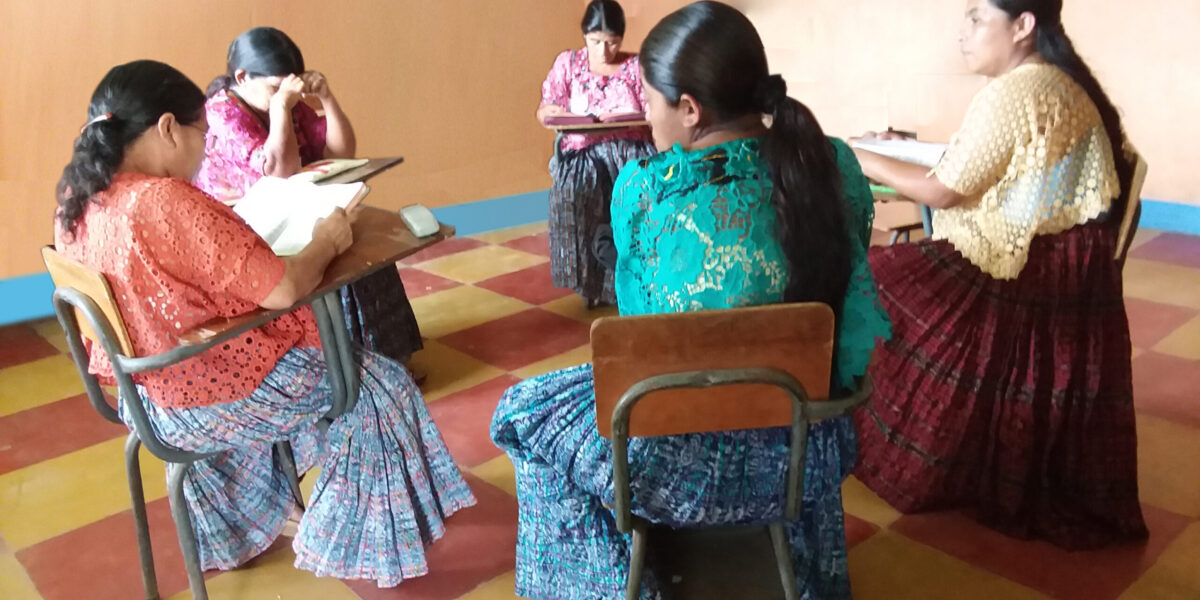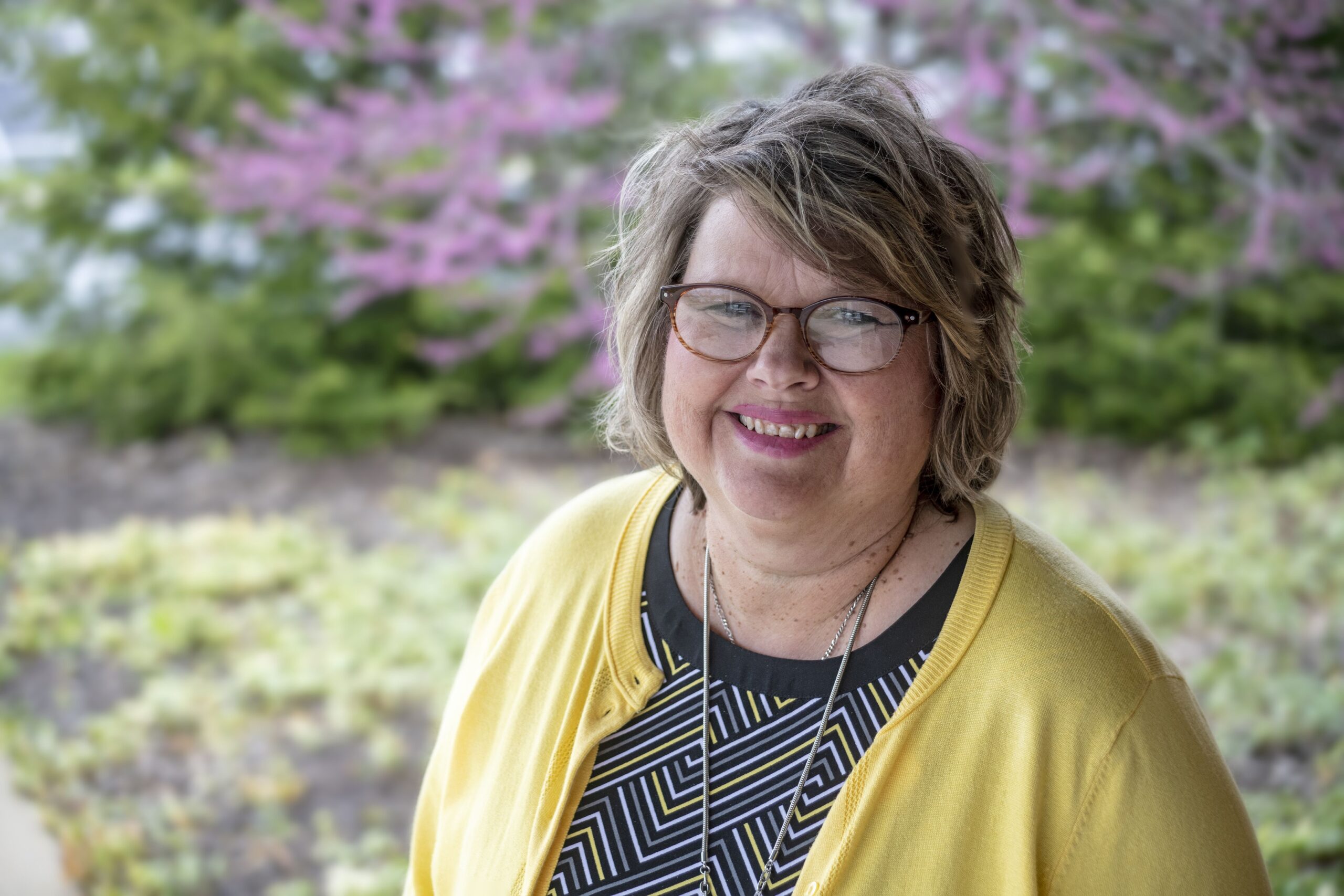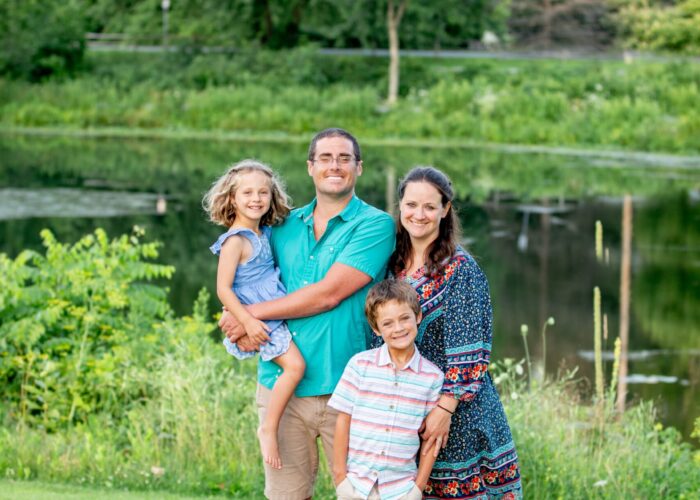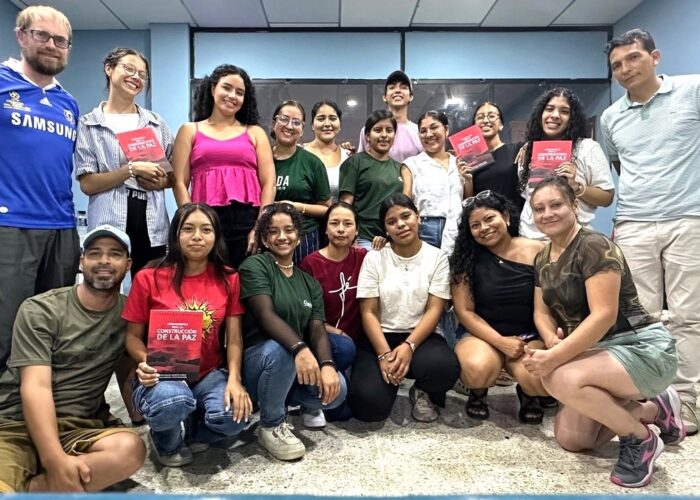By invitation of the Iglesia Nacional Evangélica Menonita Guatemalteca (INEMGUA — Kekchi Mennonite Church), Deb Byler focuses on the spiritual growth and leadership development among the women leaders in the Kekchi Mennonite Church. Her ministry, through Mennonite Mission Network, includes visits, preparation of materials, and encouragement for women developing and using their gifts in their churches and communities in Guatemala.
NEWTON, Kansas (Mennonite Mission Network) — Not even pandemic shutdown and back-to-back hurricanes can stop women’s ministry leader Maria Pa from connecting with her Kekchi support circle across distant regions.
That’s because she is communicating with the five other women’s ministry leaders and mission worker Deb Byler, who make up her support circle, on her new smartphone, loaded with WhatsApp. The app is connecting the group through phone calls during a time when in-person meetings are not possible.
These women are regional leaders of the Kekchi Mennonite Church. They travel long distances — by foot, minivan, or on the back of a truck — to support women in other Mennonite churches. They encourage, teach and help organize women who have weekly meetings in each church. Byler said that the women these leaders serve appreciate and respect them, as they reach out to women in those churches and in their community.
The option of using WhatsApp to communicate arose when Byler, serving with Mennonite Mission Network, brainstormed alternative ways for connecting with the six women , who now form this support circle, individually. Travel had been unsafe, due to COVID-19 concerns, even before Hurricane Eta hit the region in November 2020 and was followed, two weeks later, by Hurricane Iota. Storm flooding further squelched in-person visits to the women with whom Byler partners in the Kekchi Mennonite Church’s 140 congregations in its six regions in mountainous north central Guatemala.
"In talking with my retired mission worker brother, Dan Byler, he wondered if I could use WhatsApp to communicate with the women when I couldn’t travel," Byler said during a recent interview. "They had older cell phones that couldn’t handle WhatsApp. Mission Network agreed that using funds I would have ordinarily used for travel to buy smartphones would meet some of the same purposes as my travel."
Latin America Director Linda Shelly said that buying phones fits with the recommendations of Issa Sadi Ebombolo, of Zambia, in his presentation on "Agency Agility: International Perspective," during the virtual meetings of the Council of International Anabaptist Ministries on Jan. 12-14. He encouraged agencies to invest in communications and technology with partners to make it possible for more people to participate in virtual communications.
Purchasing the phones was the — relatively — easy part, Byler said. Tackling the steep learning curve in transitioning from the older phones to the new ones was trickier. The women are learning to use their new phones, and the group has connected three times since the phones were purchased.
Byler plans to convene the group on most Mondays. The responses to receiving the new smartphones have been filled with wonder and gratitude, Byler said. During the hour-and-a-half long calls, the women study the Bible, share their joys and concerns, and pray for one another. Byler said she enjoys learning from the insightful comments from the Kekchi women and finds it a time of mutual affirmation and teaching.

Rumualda Sacul, a women’s ministry leader in the Kekchi Mennonite Church in Guatemala, teaches a Bible study at a regional women’s meeting. Photo by Deb Byler.
"On the first call, Maria got all choked up and said, ‘Thank you so much for thinking about us and helping us,’" Byler said. "Even before the pandemic shutdown, these leaders often felt isolated. They are often criticized within their communities for breaking the stereotypes that females shouldn’t be leaders and shouldn’t travel. Mutual support is important."
The newer technology, though strange, brought laughter to Olivia Chiquin. "She kept saying, ‘I can’t believe I can see you all when I talk with you on the phone,’" Byler recalled.
Other non-technical challenges include the ability to hear each other over roosters crowing, dogs barking and children playing, as well as synchronizing the phone call time, Byler said.
"Generally, the women’s houses are small, with only a kitchen and a bedroom, so you can get a lot of the background noise," she said. "Also, in the Kekchi culture, time is not tightly structured, so needing to be at a certain place at a certain time can be a challenge."
All challenges aside, the smartphone connection is a spiritual one, recharged by the loving fellowship in Christ — a love that no floods or disease or technological challenges can disconnect or destroy.
"Despite all the challenges of 2020, I see a lot of hope and resiliency in the Kekchi community," Byler said, of which the new smartphones are now a part. "They help the women to know that we are all in this together. COVID-19 has reminded us how much we need each other, and that we can’t do God’s work on our own.
"We have had to be creative in finding ways to help each other and to remind each other that God is with us and is where our hope lies. And God’s ways are not our ways. There is no way I would have ever thought of smartphones to conduct our meetings, if it weren’t for the pandemic."





